Icons of Innovation: 6 Cultural Catalysts Bridging People and Place
Cultural projects serve as more than just physical spaces; they embody collective identity, history and the evolving narratives of our communities. From the grand halls of theaters to the intricate layouts of museums, these spaces reflect the diversity of human experience and the role architecture plays in shaping how we engage with art, history and culture. The significance of such projects has never been greater as they continue to inspire, educate and bring people together across boundaries.
For this year’s A+ Awards, architects and designers have again been recognized for exceptional cultural designs pushing the boundaries of form, function and innovation. This year’s winners showcase an array of projects that redefine the cultural landscape, elevating the experience of art and how to engage with the community. Across cultural centers, concert halls, theaters and museums, major trends are emerging that emphasize sustainability, inclusivity and accessibility. This year’s award-winning designs highlight how cultural architecture can lead the way in fostering a deeper connection between people and place.
Prepared Rehmannia Root Crafts Exhibition Hall
By LUO studio, Xiuwu County, Jiaozuo, China
Jury Winner, Cultural and Expo Centers, 12th Annual A+Awards
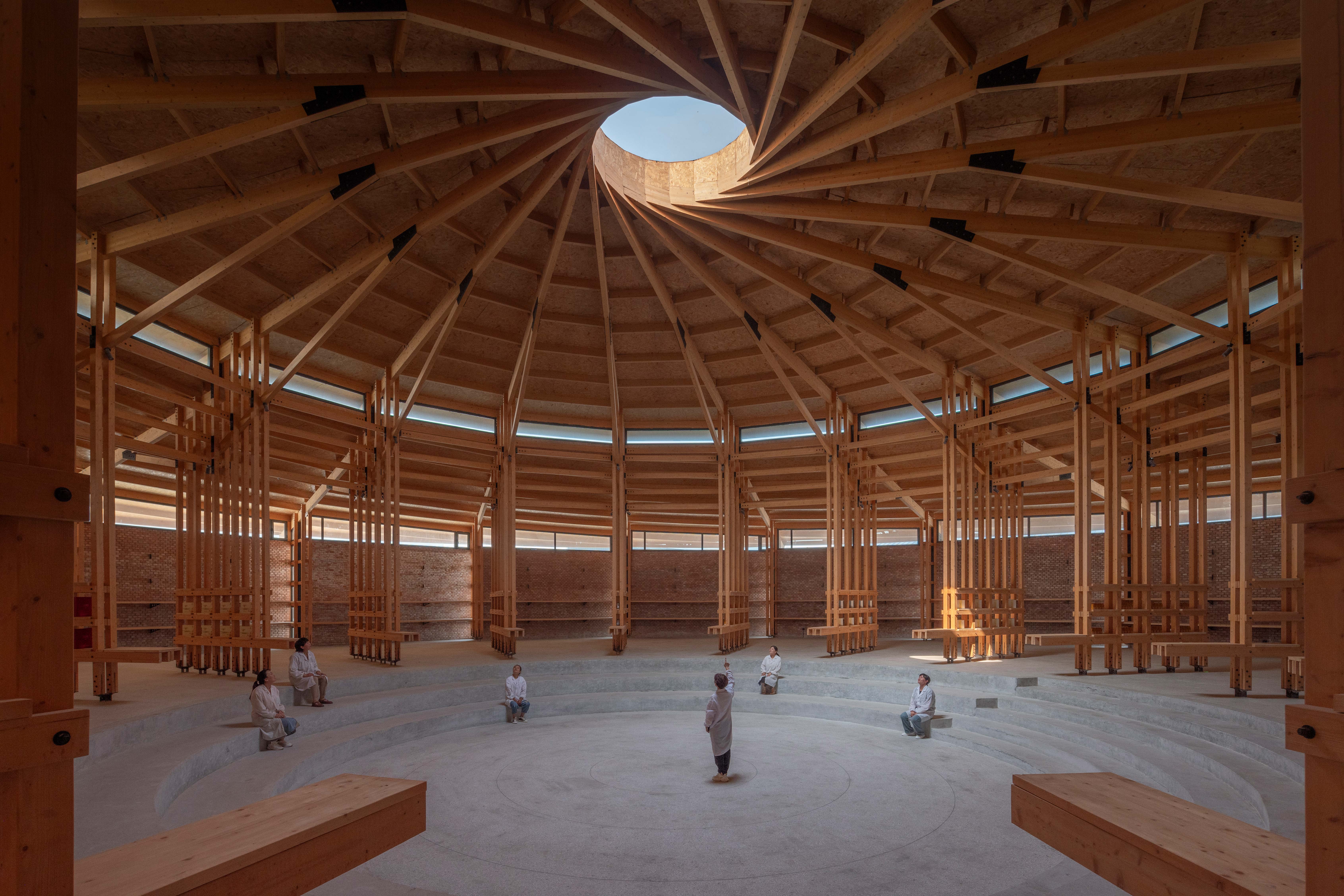
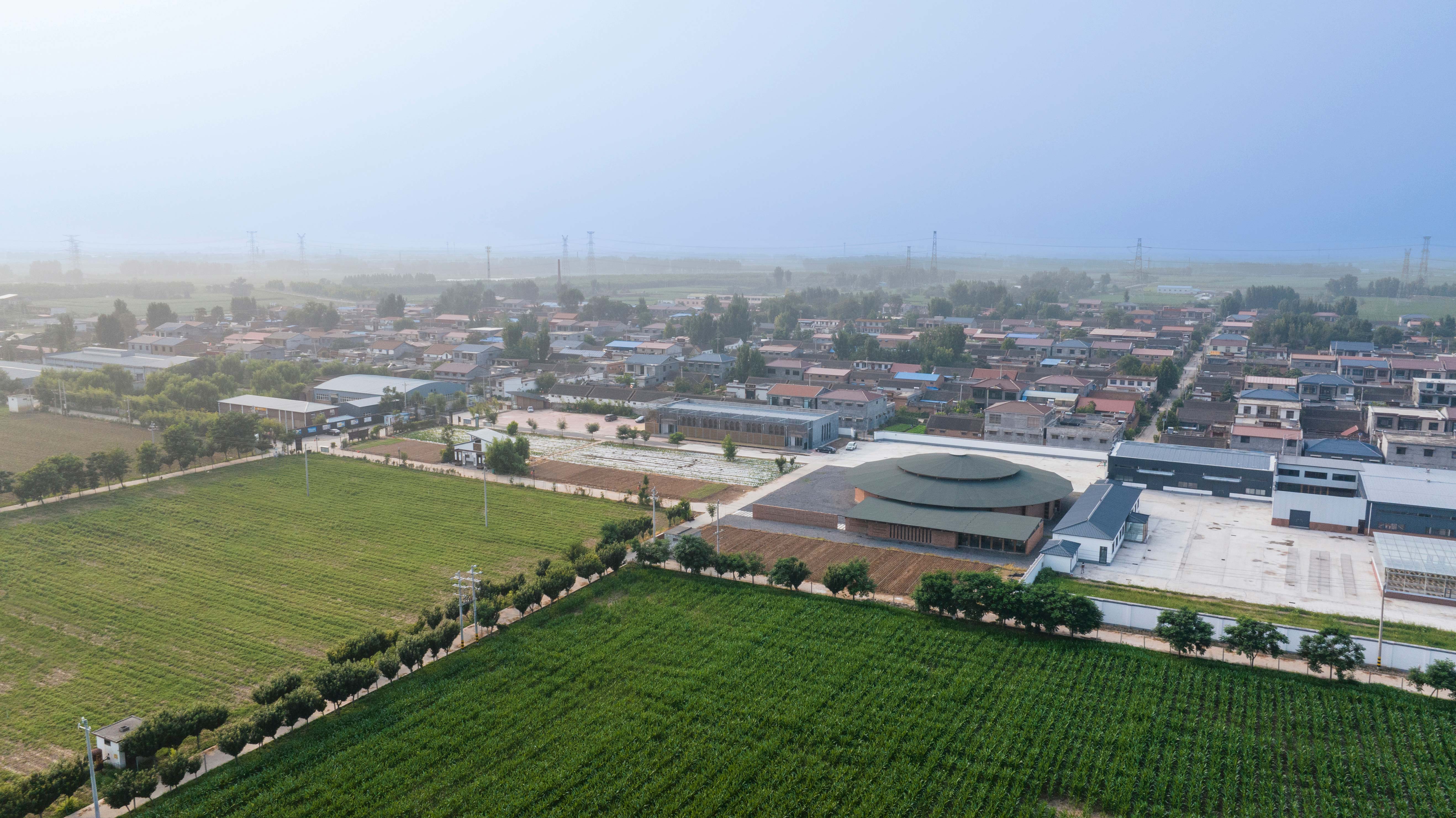 Xiuwu County in Henan Province, historically known as Huaiqing Prefecture, is renowned for its production of traditional Chinese medicinal herbs, including the highly valued Rehmannia root (“Shu Di Huang”). In Houyanmen Village, the county has prioritized rural industrial revitalization, with the Ice Chrysanthemum Plantation and the Prepared Rehmannia Root Crafts Exhibition Hall serving as key examples.
Xiuwu County in Henan Province, historically known as Huaiqing Prefecture, is renowned for its production of traditional Chinese medicinal herbs, including the highly valued Rehmannia root (“Shu Di Huang”). In Houyanmen Village, the county has prioritized rural industrial revitalization, with the Ice Chrysanthemum Plantation and the Prepared Rehmannia Root Crafts Exhibition Hall serving as key examples.
Supported by government funding, these facilities employ local red bricks and engineered wood frames, blending traditional craftsmanship with modern construction techniques to create durable, spacious structures that honor the village’s architectural heritage. LUO studio’s innovative design for the exhibition hall integrates local materials and ecological considerations, challenging conventional industrial park construction methods while promoting the integration of agriculture, tourism and education in the region.
Skamlingsbanken Visitor Centre
By CEBRA, Kolding, Denmark
Popular Choice Winner, Cultural and Expo Centers, 12th Annual A+Awards
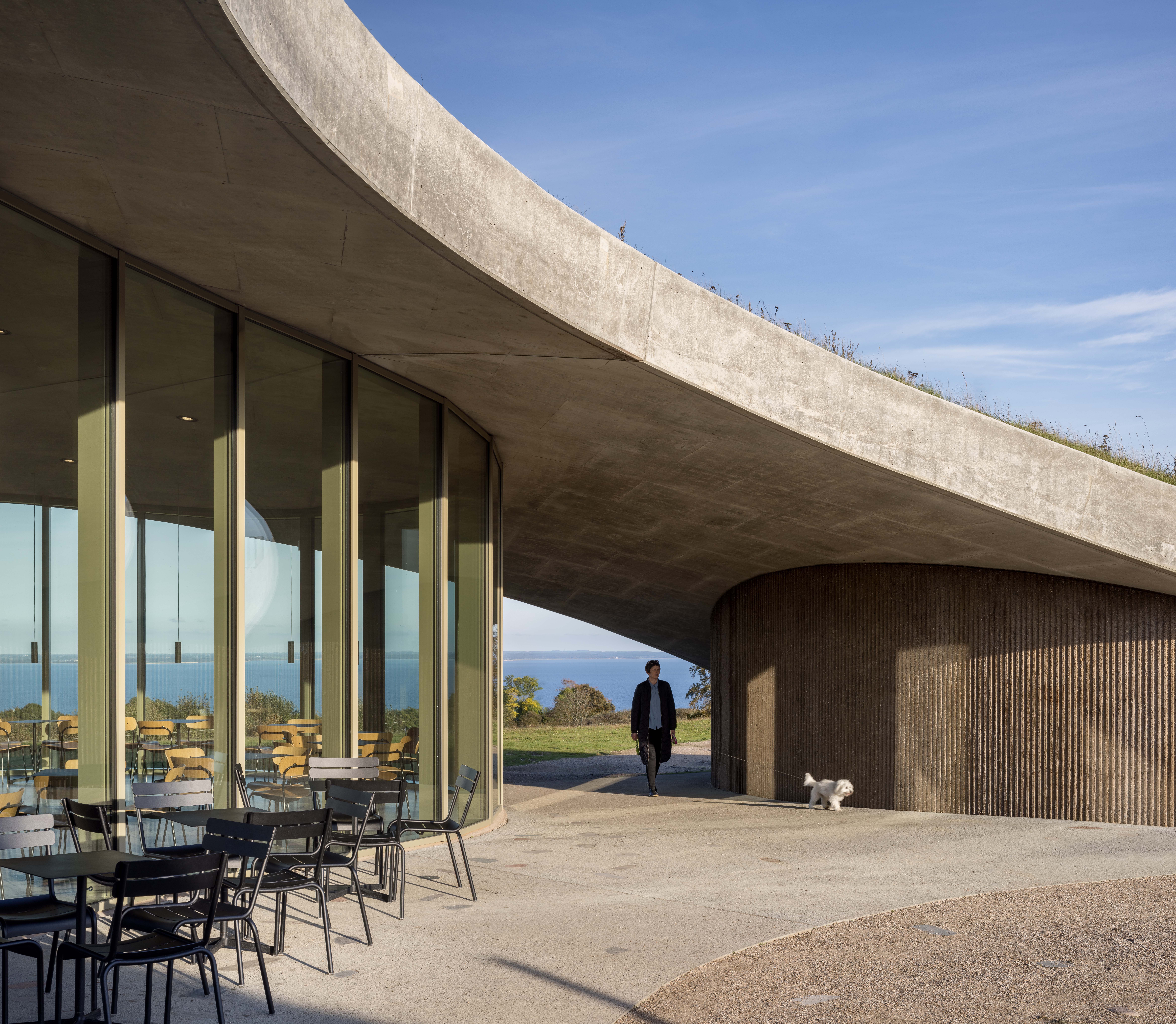
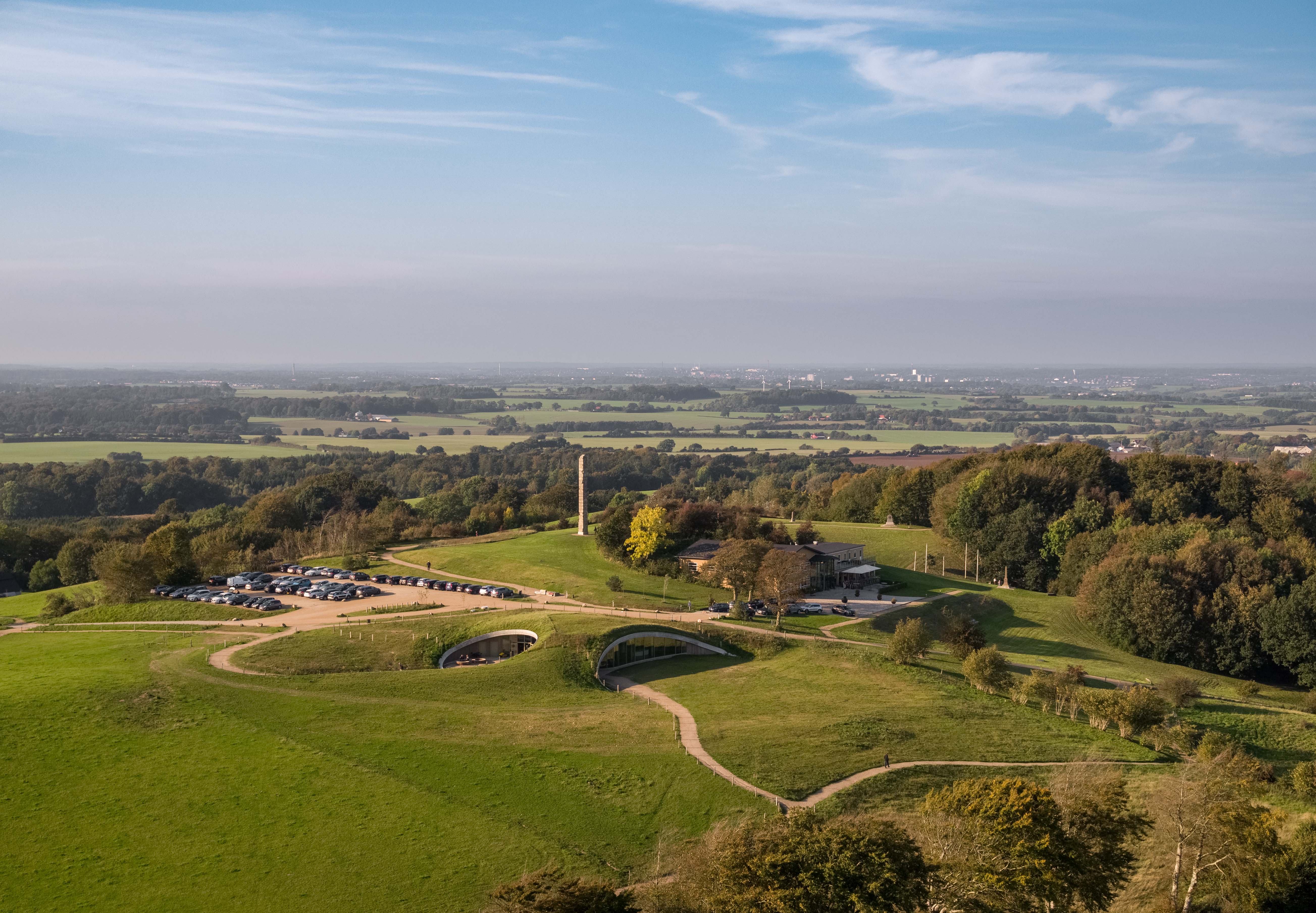 The visitor center at Skamlingsbanken, a historic site in southern Denmark, is designed to blend seamlessly with its glacial landscape, reflecting the area’s rich history of democratic events and natural beauty. Built into the rolling hills, the center serves as both a gateway to the surrounding nature and a space for exhibitions on Skamlingsbanken’s past.
The visitor center at Skamlingsbanken, a historic site in southern Denmark, is designed to blend seamlessly with its glacial landscape, reflecting the area’s rich history of democratic events and natural beauty. Built into the rolling hills, the center serves as both a gateway to the surrounding nature and a space for exhibitions on Skamlingsbanken’s past.
The architecture, inspired by the landscape, features local materials like wood and terrazzo, creating an earthy, introspective environment. A collaborative effort expanded the protected area around the center, ensuring the preservation of local biodiversity with a custom grass mixture to support native species.
Théâtre de Verdure
By Lemay, Montreal, Canada
Jury Winner, Hall / Theater, 12th Annual A+Awards
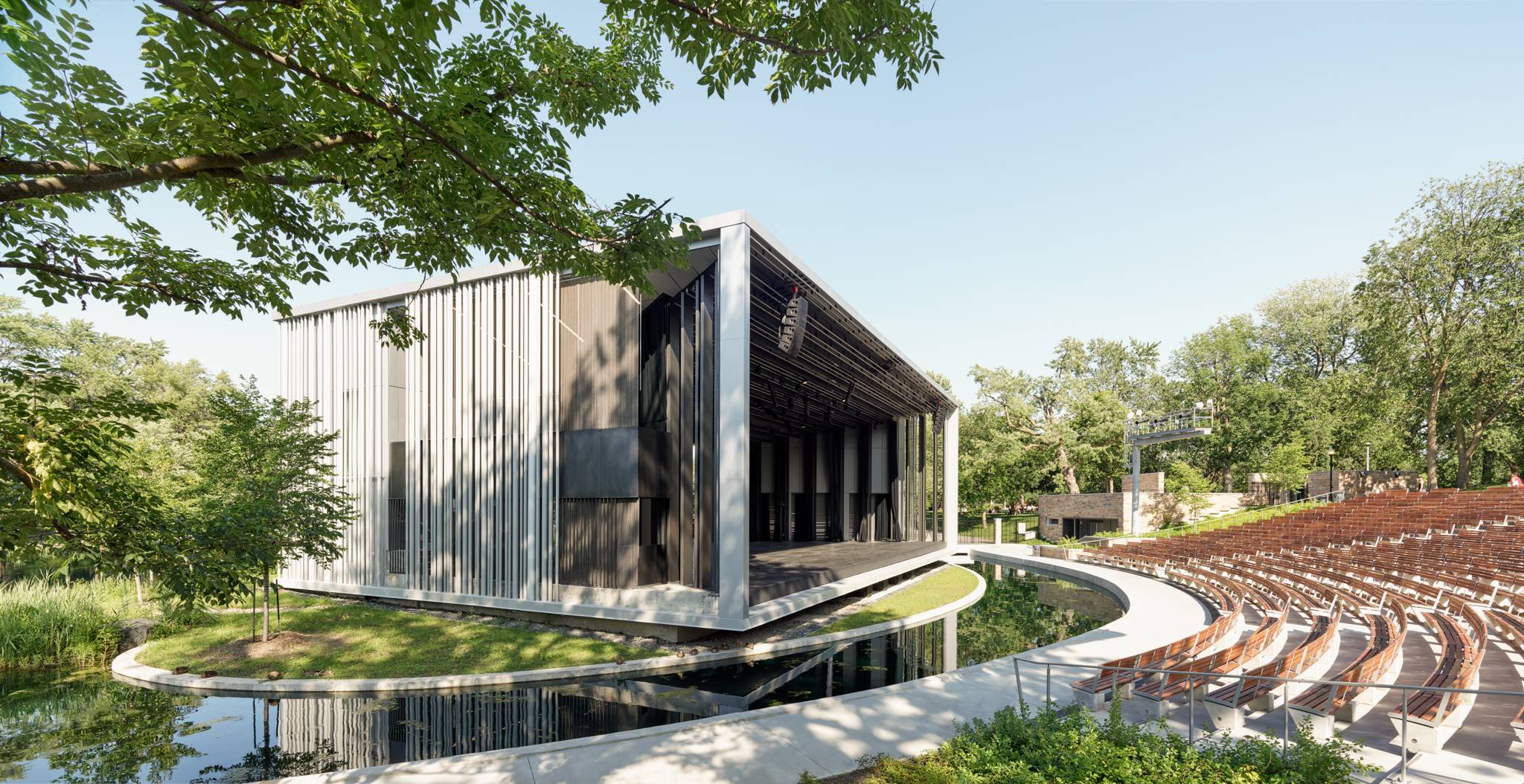
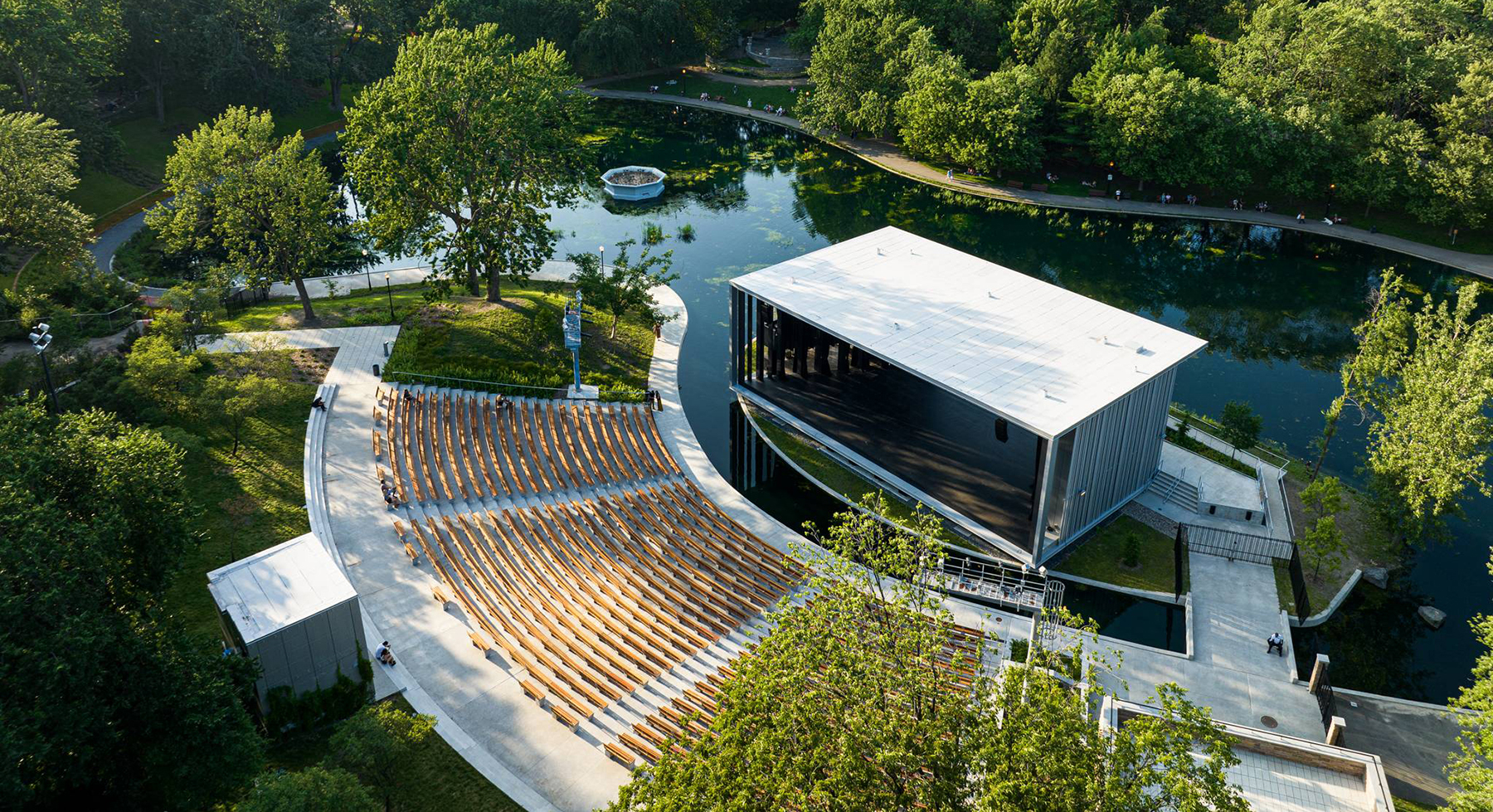
The redevelopment of the Théâtre de Verdure, originally opened in 1956, has transformed it into an inviting, year-round venue that harmoniously blends architecture and landscape. The project includes a new building, redesigned stage, amphitheater, and public spaces, all using modern materials that honor the theater’s original modernist design.
The structure’s transparent, open design creates a seamless connection between the theater and its natural surroundings, allowing it to comfortably host up to 2,500 people for major outdoor events while remaining sensitive to the enchanting site it inhabits.
Perelman Performing Arts Center
By REX, New York City, New York
Popular Choice Winner, Hall / Theater, 12th Annual A+Awards

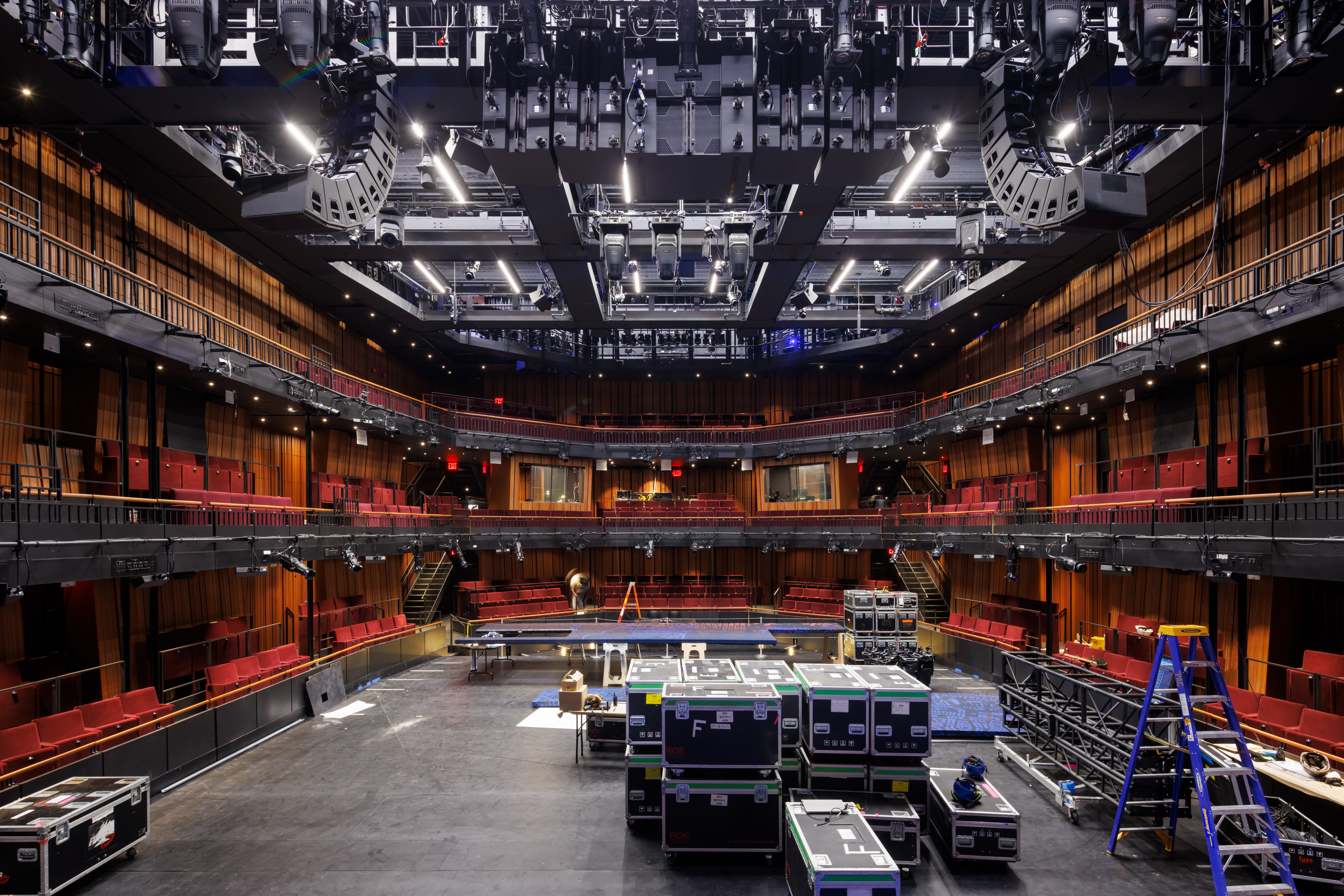 The Perelman Performing Arts Center (PAC NYC) is a key cultural landmark and the final public element of the World Trade Center master plan. This dynamic venue hosts music, theater, dance, opera and film, with a design that enhances artistic creativity and offers patrons ever-changing experiences. The building’s elegant form, wrapped in translucent marble, appears solid by day and reveals its vibrant interior at night.
The Perelman Performing Arts Center (PAC NYC) is a key cultural landmark and the final public element of the World Trade Center master plan. This dynamic venue hosts music, theater, dance, opera and film, with a design that enhances artistic creativity and offers patrons ever-changing experiences. The building’s elegant form, wrapped in translucent marble, appears solid by day and reveals its vibrant interior at night.
PAC NYC features three adaptable theaters with seating configurations ranging from 90 to 950, allowing for diverse stage formats. The structure, designed to overcome complex underground constraints, is supported by seven super columns and protected from external vibrations, ensuring uninterrupted performances. The façade’s 4,896 marble-glass panels, arranged in a biaxially symmetric pattern, add to the building’s striking aesthetic.
Richard Gilder Center for Science, Education, and Innovation
By Studio Gang, New York City, New York
Jury Winner, Museum, 12th Annual A+Awards
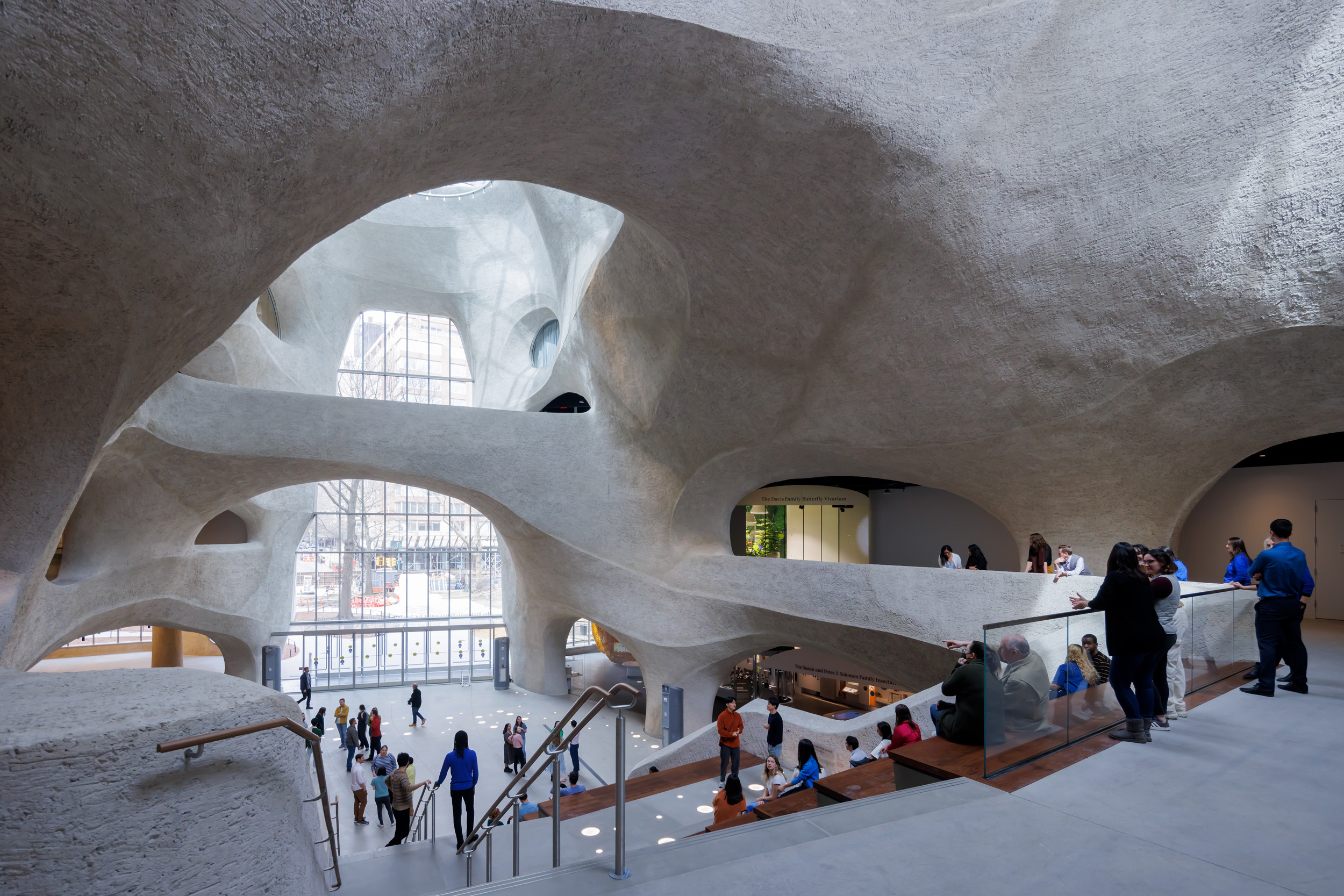
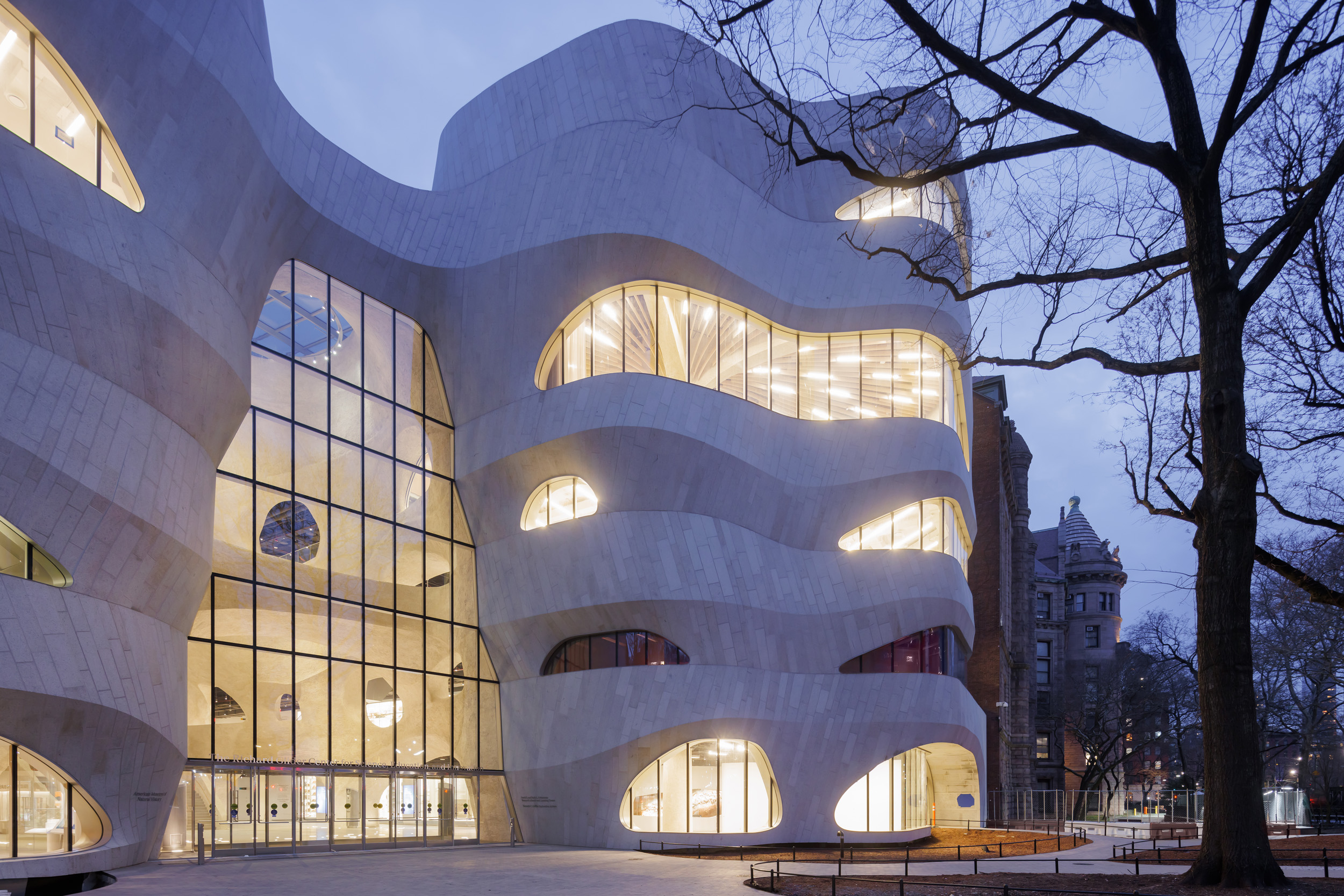 The Richard Gilder Center for Science, Education, and Innovation at the American Museum of Natural History in New York enhances public understanding of science through experiential architecture. The design creates over 30 connections among 10 buildings, improving functionality and visitor flow with a new accessible entrance on Columbus Avenue. The building’s central five-story atrium, inspired by natural geologic formations, opens to natural light and invites exploration.
The Richard Gilder Center for Science, Education, and Innovation at the American Museum of Natural History in New York enhances public understanding of science through experiential architecture. The design creates over 30 connections among 10 buildings, improving functionality and visitor flow with a new accessible entrance on Columbus Avenue. The building’s central five-story atrium, inspired by natural geologic formations, opens to natural light and invites exploration.
The Center features an insectarium, butterfly vivarium, the Collections Core with over 3 million specimens, and immersive exhibits like Invisible Worlds. The Gilder Center’s vertical design reduces energy use, with a high-performance envelope and passive cooling strategies that reflect the Museum’s commitment to the natural world.
Qujiang Museum of Fine Arts Extension
By Neri&Hu Design and Research Office, Xi’An, China
Popular Choice Winner, Museum, 12th Annual A+Awards
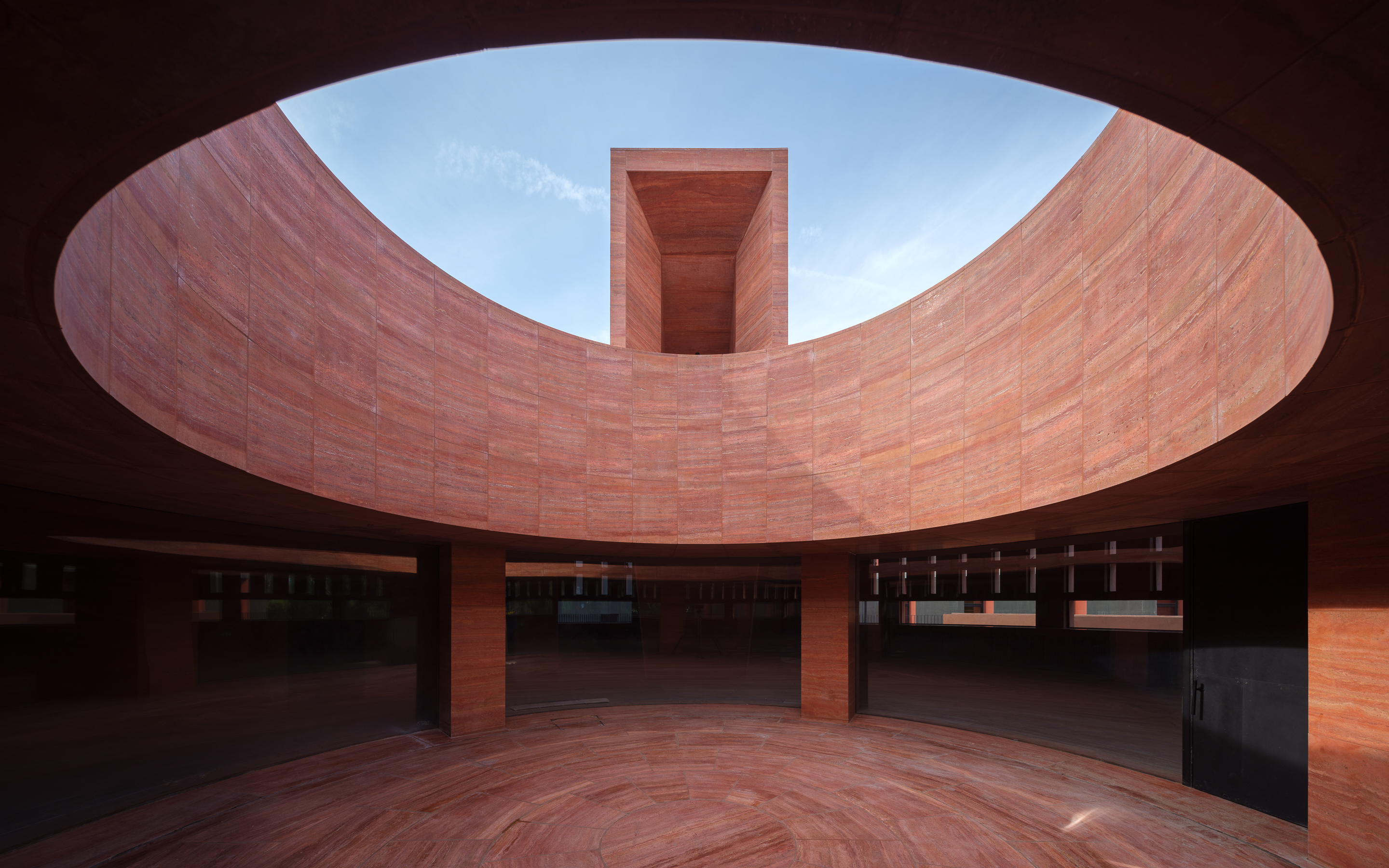

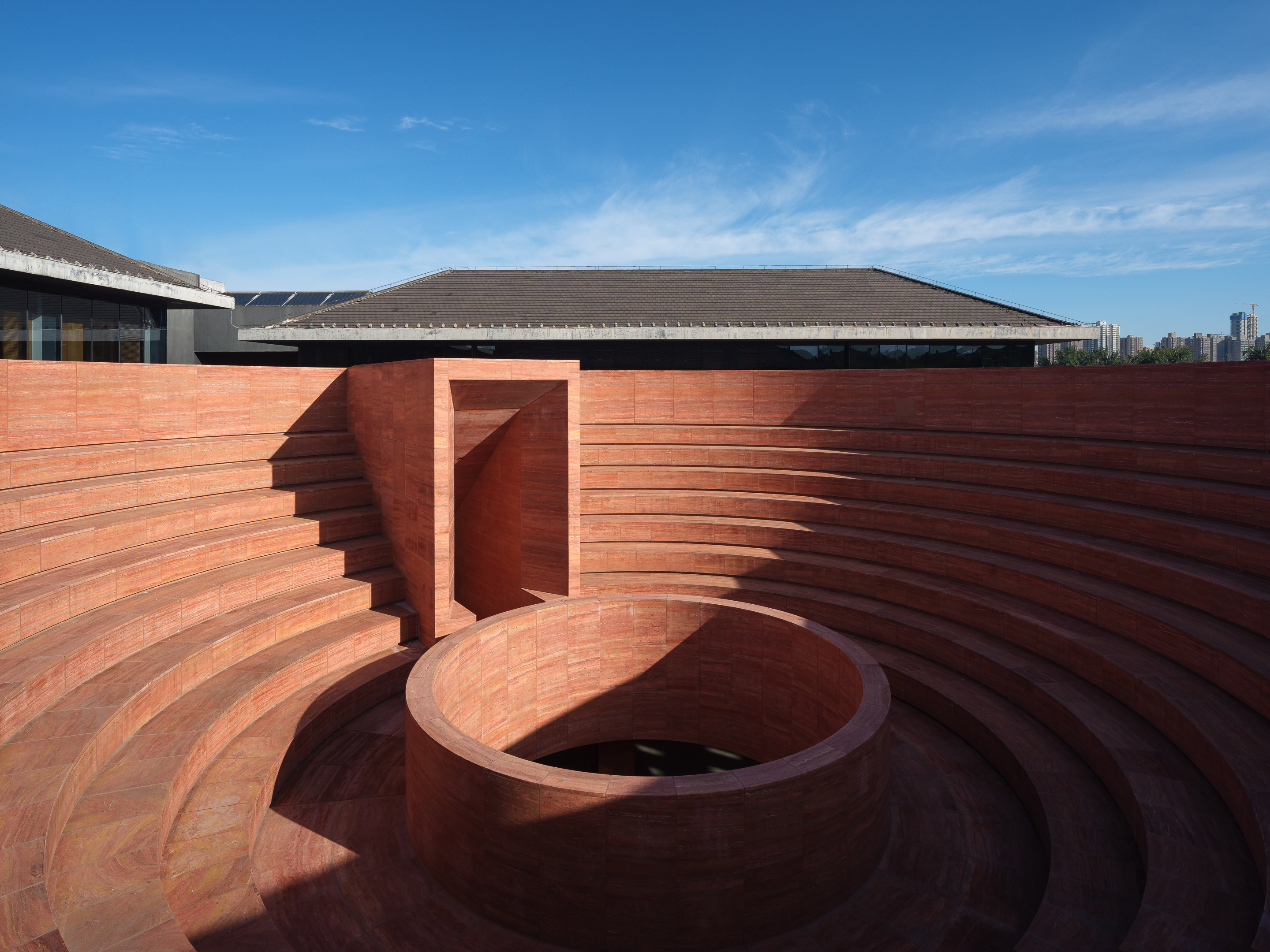 The Qujiang Museum of Fine Arts in Xi’an, located near the Giant Wild Goose Pagoda, was designed by Neri&Hu as a monolithic urban monument. Serving as an architectural icon and cultural anchor at the museum’s East Entry, the design carefully integrates with the surrounding urban fabric.
The Qujiang Museum of Fine Arts in Xi’an, located near the Giant Wild Goose Pagoda, was designed by Neri&Hu as a monolithic urban monument. Serving as an architectural icon and cultural anchor at the museum’s East Entry, the design carefully integrates with the surrounding urban fabric.
The building consists of four parts: a partially sunken concrete base that retains original museum spaces and adds new retail functions, a Sculptural Walk enclosing circulation, an elevated podium platform, and a monumental structure. Escalators within a sculptural form lead visitors from the ground plaza to the underground museum, creating a dramatic entry experience.
Architects: Want to have your project featured? Showcase your work through Architizer and sign up for our inspirational newsletters.The post Icons of Innovation: 6 Cultural Catalysts Bridging People and Place appeared first on Journal.
